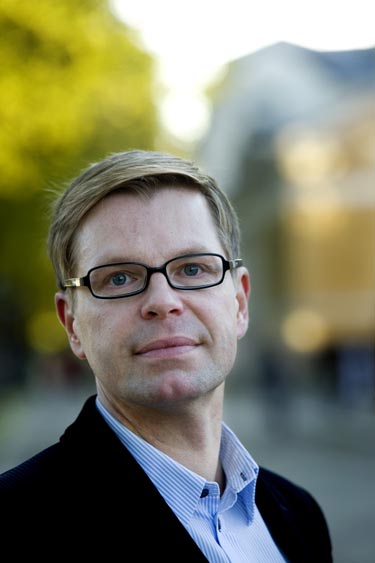 |
Issue 31 (3/2010)
|
|||
FSD Bulletin is the electronic newsletter of the Finnish Social Science Data Archive. The Bulletin provides information and news related to the data archive and social science research.
|
Democracy Research at Åbo Akademi UniversityDemocracy: A Citizen Perspective (D:CE) is an interdisciplinary centre of excellence at the Åbo Akademi University, studying the development of modern democracy from the citizen point of view. The centre uses both traditional and innovative research methods to examine the extent of transition from a class and party-based democracy to an audience democracy. Another main objective is to study the meaning and significance of this transition to citizens. D:CE is lead by professor Lauri Karvonen, with Kimmo Grönlund acting as the Director of Research. Research on changing forms of democracyAccording to political scientists, conventional political participation has declined over the past few decades, with a transition towards "audience democracy". This is displayed in the changing political attitudes, political behaviour and forms of participation. The findings of D:CE research, conducted through traditional research methods such as interviews, register data and case studies, seem to support this theory. Still, there is no clear evidence that the personalization of politics is becoming a common international trend.
Citizen deliberation experimentThe centre has used experimental methods to explore whether participatory democracy is possible and how citizens experience it. Two citizen deliberation experiments have been conducted, a face-to-face deliberation between citizens in 2006 and a virtual replication of the face-to-face deliberation in 2008. The experiments tested whether it would be possible to utilise participatory democracy in decision-making. The subject matter of the deliberations conducted was whether a sixth nuclear power plant should be constructed in Finland. In 2006, a random sample of adult persons living in the Turku area was drawn. The participants first responded to a survey and were then invited to take part in the face-to-face deliberation event. They received written information prior to the event. The deliberation was a one-day event where the participants were given impartial information on nuclear power, opportunity to question an expert panel and then discuss the issue in randomly allocated groups of 10-13 persons. Some groups reached decisions through secret vote, some by writing a statement accepted by all group members. Online deliberation was tested in 2008. Invitations to participate were sent to randomly selected persons. Of those who volunteered, 200 were chosen to participate. The participants held small group videoconferences with microphones and web cameras. Otherwise the process of the virtual deliberation replicated that of the face-to-face event.
Challenges of virtual environmentsThe centre found that organisers of virtual experiments should take into account the
importance of technical support.
Decline in conventional political participationOne goal for the centre is to provide recommendations on how to develop democratic processes.
Finnish innovations important for researchThe centre engages in international cooperation with, for instance, other Nordic, Swiss,
British and Australian researchers. Kimmo Grönlund and professor Brigitte Geissel
(Goethe-Universität Frankfurt am Main) act as convenors for a standing group "Democratic
Innovations" of the European Consortium for Political Research. The group promotes
collaborative research and organizes summer
schools as well as meetings during international conferences.
|
 Kimmo Grönlund says that the centre has used both national and
cross-national comparative data. Survey data are often combined with register data,
particularly for research on voter turnout and election results.
Kimmo Grönlund says that the centre has used both national and
cross-national comparative data. Survey data are often combined with register data,
particularly for research on voter turnout and election results.